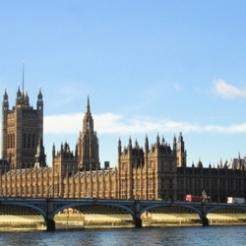The Lobbying Act is tying charities in unnecessary red tape, while having a chilling effect on their campaigning activities, according to a report released today.
The Commission on Civil Society and Democratic Engagement’s inquiry report looks at evidence drawn from across the sector, as well as a survey representing a range of 53 charities, campaign and voluntary groups, faith groups, and from the Electoral Commission.
Of those 53 bodies, eight had scaled down their activities to avoid registering, the Commission found.
The report revealed that many organisations are cautious about campaigning on politically contentious issues because they “fear breaking the law or the reputational risk of vexatious complaints”.
On this “chilling effect”, 63 per cent of survey respondents stated that “compliance with the Act will make some or all of their organisational or charitable objectives harder to achieve”.
A spokesperson from Anthony Nolan responded to the survey, saying “Electoral Commission investigations will make trustees and senior management nervous about campaigning activity.
“As an organisation which is very new to campaigning, a complaint, however unfounded, would probably set us back.”
The survey revealed that 30 of the 53 respondents are currently planning not to register as third-party campaigners in the lead up to the 2015 election. Eight of these said that this is because they have changed their campaigning plans to ensure they do not need to register, for example by reducing their budget so they won’t meet thresholds.
The report of the Commission, led by Lord Harries of Pentregarth, says that organisations expressed concern that understanding the law and associated guidance, as well as managing their campaigns to ensure that they comply, is consuming “disproportionate resources”.
It said one in five of the survey’s 53 respondents said they had spent more than ten working days, “understanding and/or adjusting plans based on the guidance”.
The cost of seeking advice is also of great concern to the organisations surveyed. Out of the 53 respondents, three organisations that are currently planning not to register as third-party campaigners reported that they have already spent more than £1,000 seeking legal advice. One organisation reported that they have already received pro-bono legal advice to the value of £10,000.
The report also suggests that another main impact of the law so far is on coalition campaigning. It says that the law makes it impossible for charities and campaign groups to work together and speak out on politically contested issues as they did before the act.
'The Lobbying Act should be repealed'
The report has produces several recommendations, the first of which is that the Lobbying Act should be repealed, except for the increase in registration thresholds. It also suggests that politicians from all parties, the Electoral Commission and the Charity Commission should actively defend charities and campaign groups speaking out on contentious issues during the regulated period, in order to minimise the chilling effect.
The Commission has previously produced two reports during the Lobbying Act’s progress through Parliament.
Lord Harries said: “Our inquiry shows that the Act has had a chilling effect on organisations speaking out on issues from climate change to assisted dying. It is also tying some of our best loved charities and campaign groups in unnecessary red tape.
“In trying to ward off a hypothetical abuse of the electoral system the Government is inflicting unnecessary and unenforceable regulation on campaigning groups, who now play such a key role in keeping our democracy alive.”









